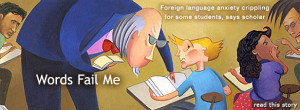English is devilishly hard: If teachers taught, why didn’t preachers praught?
 English is really devilishly hard – for foreign learners, not to speak native ones as much as non-natives required (or nudged towards) learning. The last category includes trading partners and conquered subjects and the like. This was true in the days of the British empire, continued in the “American century” and remains valid today.
English is really devilishly hard – for foreign learners, not to speak native ones as much as non-natives required (or nudged towards) learning. The last category includes trading partners and conquered subjects and the like. This was true in the days of the British empire, continued in the “American century” and remains valid today.
The point about English though, as R.L.G reminds us in his Economist blog, is its wayward way with prepositions. R.L.G quotes from a new book by Peter Littger, The Devil Lies in the Detail. Mr Littger, a columnist for Der Spiegel online, “addresses a chapter to Germans’ perplexity,” writes R.L.G. “Germans sensibly say, when travelling by rail, Ich bin im Zug—I am in the train. Why on earth, then, do English-speakers say I’m on the train? It sounds an awful lot like riding on the roof. But English does the same with on the bus, on the plane, on the tram. If someone is in the plane it sounds as she might be in the luggage hold. The only exception to the on-preference seems to be in the car.”
Perplexing but true.
And then there are those other mind-boggling English-isms, as pointed out by the Oxford Royale Academy (which emphatically is self-confessedly NOT “part of or affiliated to the University of Oxford” and is therefore probably trying to get all those Oxford-aspiring foreigners who may or may not speak English).
The ORA lists the following illogical ways of English:
* here is no ham in hamburger
* Neither is there any apple nor pine in pineapple
* If teachers taught, why didn’t preachers praught?
* If a vegetarian eats vegetables, what does a humanitarian eat?
* “Overlook” and “oversee” have opposite meanings, while “look” and “see” mean the same thing.
There’s so much about the English language that is the exception to the rule.

